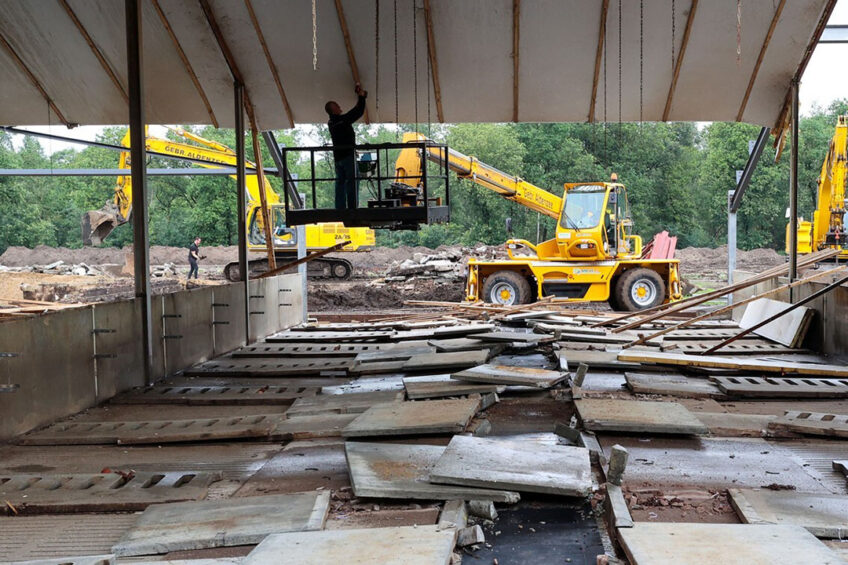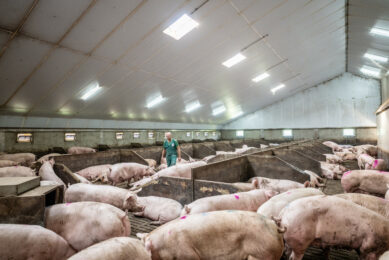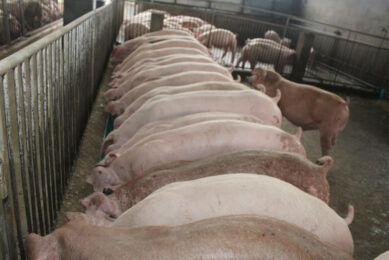Dutch pig industry shrinks by 6.7%

The pig industry in the Netherlands is in the process of shrinking by 6.7% – equalling a total of 278 swine farms. That is the consequence of a stricter environmental legislation policy.
The decrease is the consequence of an attempt by the Netherlands authorities to reduce the total amount of odour and nitrogen emissions in the country. Initially started as an attempt to reduce the odour pressure close to villages and towns, the policy was broadened in recent years to also bring down the total of nitrogen emissions in the country, as a surplus of nitrogen in the environment is believed to have an impact on biodiversity. For the so-called “Subsidy Policy Pig Farming” (SRV), a voluntary programme, a total of € 450 million was made available.
First payment for stopping pig farmers
All 278 pig farmers have already received a first payment of 10% of the stopping subsidy. Another 163 have already received a second payment of 70%, which means that the pigs have truly disappeared. Mid-June already 21 farms had been torn down.
All in all, the subsidy regulation has not proved to be the “success” the Netherlands Ministry of Agriculture, Nature and Food Quality (LNV) had hoped for. Initially 502 farms expressed interest, but several farms withdrew their interest; the reasons for that are yet to be researched. For the policy € 450 million was available, so far € 170 million is still available; those funds will be applied in a different way.
Pork producers of a diverse background
What is clear, however, is that the group of stopping farms has a diverse background, with sow farms, finisher farms and farrow-to-finish farms. In addition, sizes are variable and quite a number of farms were performing well. Obviously, a chunk of the producers that did choose to stop simply had no successor, hence this opportunity was too good not to use.

As all types of farms are in the process of stopping, it is likely that he total market situation will not get dislodged. That is the assessment of the Netherlands’ Pig Producers Organisation (POV) assesses the situation that the market in the country has not got terribly dislodged. It looks like there is no need to export additional piglets.
Most stopping farms are in the south of the country, in the provinces Limburg and North Brabant.
Despite the subsidy policy, it is expected that the Netherlands swine industry can continue to play a main role internationally. According to the POV, companies in the surrounding agribusiness are investing increasingly abroad.

In general, pig production is not embraced everywhere in the Netherlands, as can be read in this Expert Opinion
Innovation power for the Dutch swine industry
The policy could even give a push the Netherlands’ innovation power, stated René Veldman of Rabobank. After all, new innovations spurred by this policy could lead to huge steps being taken by the swine industry to become virtually free from odours or emissions, with a substantially better use and valoration of manure. In terms of emissions, environment and circular farming, the Netherlands could play a role on the global stage.











